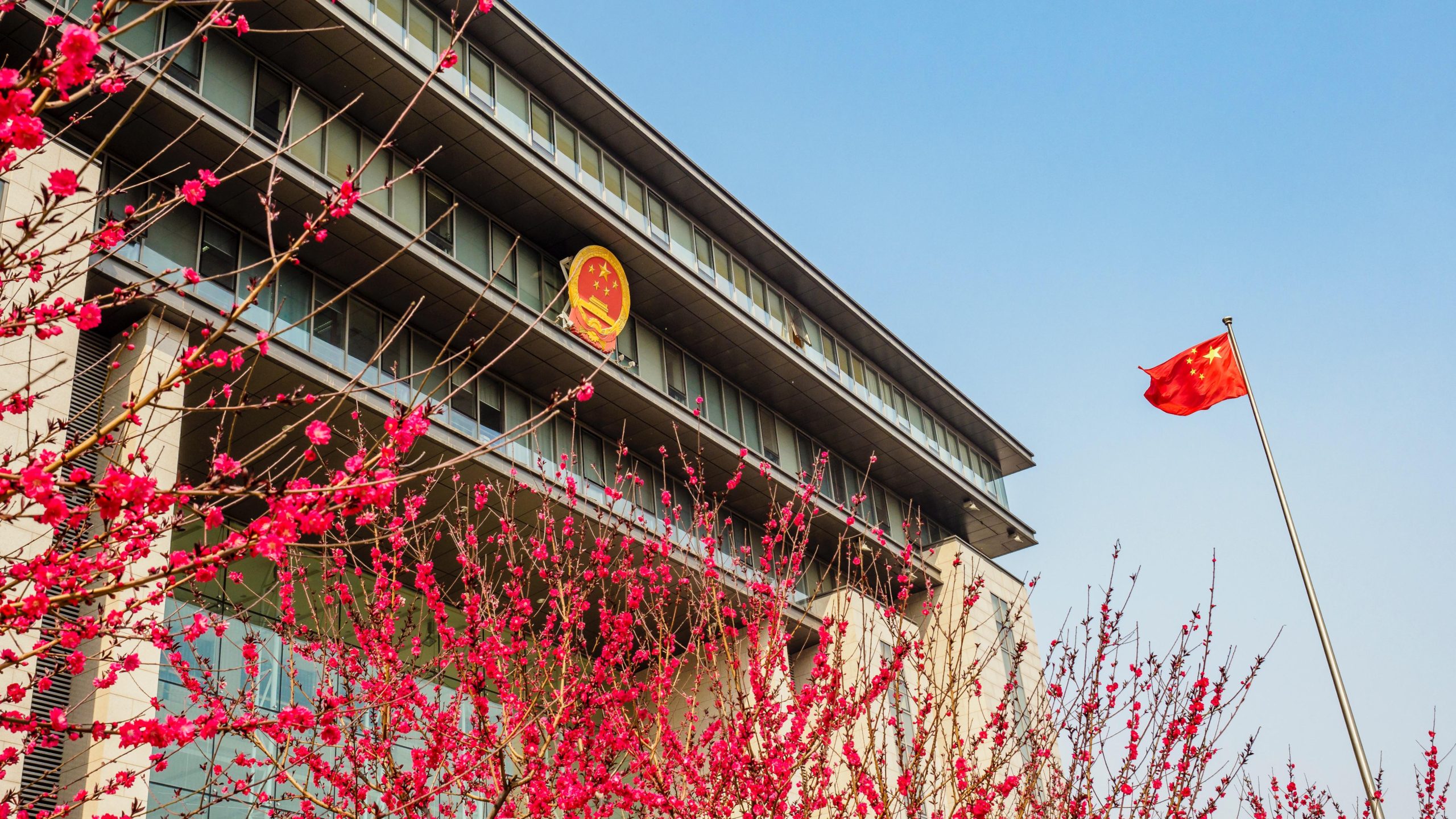Discontented with trade disputes and China’s suppression of human rights, Western countries have been imposing a series of sanctions on China. Such measures have prompted China to retaliate by passing the Anti-Foreign Sanctions Law (AFSL).
However, the AFSL is unlikely to be an effective tool in the face of potential Western sanctions on Russian allies as a result of the Russia-Ukraine War. This is because its enforcement would discourage Western companies from continually operating their businesses in China, which has declared a ‘no-limit’ partnership with Russia.
According to Article 12 of the AFSL, businesses or individuals in China are not obliged to follow ‘discriminatorily restrictive’ foreign sanctions. If anyone violates the provision, Chinese citizens and organizations can file a lawsuit against them and request compensation for losses.
Meanwhile, the ASFL has granted the Chinese state the right to launch countermeasures if other countries impose sanctions on it. Article 14 further states that any organization or individual that fails to implement these countermeasures or to cooperate with the Chinese state could incur legal liabilities. The AFSL therefore forces foreign companies to take sides: it coerces foreign firms into contravening Western sanctions and helping China retaliate against these perceived threats.
Since the ratification of the law, Western firms have been facing a dilemma because compliance or incompliance with sanctions from their home countries would arouse the discontent of China and the West, respectively.
The risk of operating a business in China increases, thus resulting in a decline in investor confidence. Overseas ownership of China’s government bonds declined from 11.1% in January 2022 to 10.3% in May 2022, causing the longest stretch of money outflows since 2014. Meanwhile, the Russia-Ukraine War further exacerbated these companies’ fears that they will soon face the day when they have to unequivocally decide between complying with Western sanctions or sticking to the Chinese market.
Russia’s deliberate attacks and infringement of Ukraine’s sovereignty have caused outrage among the international community, including among some Russian citizens. While many countries are diametrically opposed to Russia’s violation of Ukraine’s territorial integrity, China has been taking a distinctively ambiguous stance. It has also abstained from voting on the United Nations Security Council’s resolution to condemn Russia, while the remaining 11 council members all supported the resolution.
Such reluctance to join the anti-Russian alliance led by the United States is understandable because Russia has continued to be an important Chinese strategic partner. Russia has been symbolically and materially supporting China to confront the Western hegemony on economic, military, and diplomatic issues.
Considering China’s increasing power and its close partnerships with Russia that are aimed at counteracting the United States’ global influence, the US is concerned about the possibility that China will provide Russia with further support, such as material supplies or assistance to evade sanctions.
This fear is particularly intensified by Beijing’s reaffirmation of a ‘no limits’ partnership with the Putin regime just a few weeks before the outbreak of the war. Meanwhile, Russia has continually requested China to provide military or economic assistance, encouraging the country to defy Western pressure more assertively.
In turn, the West is pressuring China not to align with Russia too closely. The US has warned China not to support Russia or else China could face ‘consequences,’ possibly implying a series of intense Russia-style sanctions.
Mounting Sino-Western tensions and increasing pressure from Russia are forcing China to take sides. If China decides to align with its strategic partner, it could be vulnerable to another round of even harsher sanctions targeting Chinese companies. These sanctions would further weaken investor confidence and damage the business environment.
To protect its economy from foreign shocks, China could use the AFSL to resist foreign sanctions. However, the West seems determined to punish Russia with progressively increasing sanctions. Given this, if sanctions against China are framed as an extension of the fight against Russia, the West would be unlikely to consider the AFSL a valid defence for violating them.
Moreover, if Western firms refuse to comply with their home countries’ mandates or even support China’s countermeasures, they can be perceived as supporting the emerging China-Russia axis. Not only could the firms face intense backlash internationally, but it could also bring irreversible damage to firms’ reputations in domestic and international markets. Therefore, there is a higher chance that businesses will comply with Western sanctions to avoid fines or boycotts, despite Article 12 of the AFSL.
Admittedly, some companies maintain close business ties with China and the country provides a populous market. Nonetheless, its decreasing GDP growth during the pandemic is lowering business returns in its domestic market, while the war could further exacerbate its economic uncertainty. Given the less than favourable commercial environment, the AFSL will not help China minimize this shock.
It remains unknown if China will put the AFSL into effect when it faces a new series of foreign sanctions. Although the introduction of the AFSL has helped China develop a more comprehensive set of rules against foreign sanctions, it may not work as an effective countermeasure against potential further sanctions as a result of the situation in Ukraine.
China must avoid over-relying on the ASFL as a remedial measure against sanctions. Instead, preventive measures should be taken. It must be extremely careful in deciding its stance and handling diplomacy with Russia, so that its relations with the West, and therefore its economy, will not further deteriorate.
Ho Ting (Bosco) Hung is a Research Assistant at the Department of Government of the London School of Economics and Political Science (LSE).

